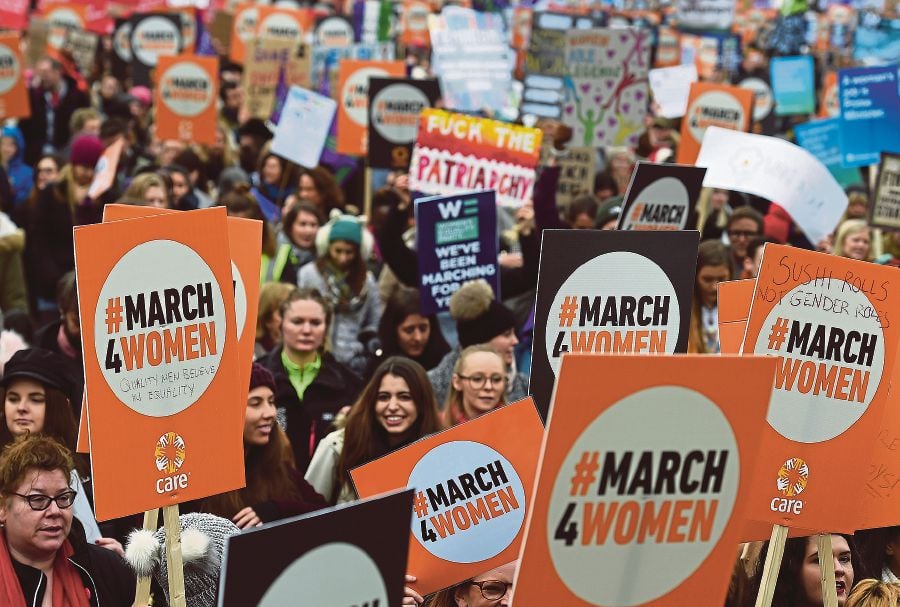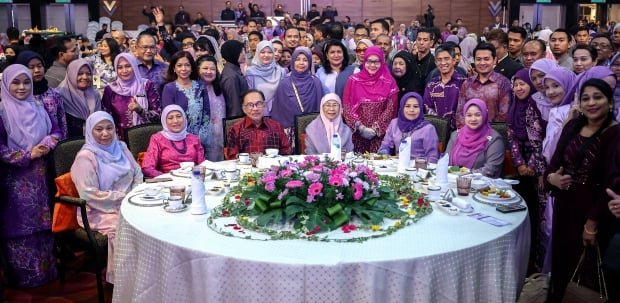IN Russia it is a national holiday since 1917. In 1975, the United Nations (UN) General Assembly recognised and began to celebrate it, with 150 countries following and 25 making it an official holiday. In the United States, Congress in 1987 even declared the month of March as commemoration of it in perpetuity. In Germany, however, a poster highlighting a march in support of it was banned in 1914.
The first million people march anywhere campaigned for it in Austria, Denmark, Germany and Switzerland in March 1911, well ahead of Louis Farrakhan’s call for a million African-American men to protest at the National Mall in Washington, DC in 1995, or The Million Women March held in 1997 in Philadelphia.
I am of course referring to International Women’s Day (IWD), held annually tomorrow to celebrate the social, economic, scientific, cultural and political achievement of women throughout history and across nations. While the world celebrates these achievements tomorrow, it will also be a poignant reminder that it is also the annual barometer of how roughly one half of the world’s population (men) treat the other half (women).
According to the latest World Economic Forum (WEF’s) Global Gender Gap Report, the data, despite some progress over the last decades, remains depressing. At current progress, the findings of the report tells us that gender parity is over 200 years away. Not surprisingly, the IWD 2018 theme is implicit in its hashtag #PressforProgress — a strong call-to-action to press forward and progress gender parity globally. It also comes with a warning that there can be no room for complacency given the enormity of the task ahead, drawing on the global activism for women’s equality fuelled by contemporary movements like #MeToo, #TimesUp, and historically the Suffragette Movement, led inter alia by the enigmatic Emmeline Pankhurst.
Pro-gender parity activists, of whom I am a signed-up supporter, are rightly trying to capitalise on the current strong global momentum striving for gender parity, including in Malaysia. After all, IWD is neither country, nor group or organisation specific, but belongs to all groups collectively everywhere. “While we know that gender parity won’t happen overnight, the good news is that across the world women are making positive gains day by day. There’s indeed a very strong and growing global movement of advocacy, activism and support,” i the IWD message for today.
IWD is also known as the UN Day for Women’s Rights and International Peace. The 1945 UN Charter was the first international agreement to affirm the principle of equality between women and men. The UN claims it “has helped create a legacy of internationally-agreed strategies, standards, programmes and goals to advance the status of women worldwide as equal partners with men in achieving sustainable development, peace, security, and full respect for human rights”. This may be partly true, but the reality simply does not match the aspiration.
While other influential international organisations have had women leading from the front such as Christine Lagarde at the International Monetary Fund, the UN has failed to push women into very senior positions. It took the General Assembly eight sittings before it elected Indian Vijaya Lakshmi Pandit as its first female president, albeit its affiliate World Health Organisation (WHO), elected Dr Margaret Chan as director-general in 2006 to serve till last year.
Influential global organisations, such as the World Bank, International Finance Corporation, Basle Committee for Banking Regulation and Supervision, European Commission, OECD, FIFA, International Olympic Committee, Organisation of Islamic Cooperation and Asean, have yet to be led by women. This confirms the scale of the gender parity challenge ahead.
The day women or half of the human race do not need to march or protest for gender parity in society will be VW (Victory for Women) Day. The real victory will be for humanity. According to WEF, gender parity is fundamental to whether and how economies and societies thrive. Women, like men, are not only human beings with equal rights, but also talent pools whose full development and appropriate deployment has a vast bearing on the growth, competitiveness and future-readiness of economies and businesses worldwide.
For the last century, rising inequality and slow economic growth in many countries, have supposedly focused attention on policies to support inclusive growth. The IMF considers inequality as one of the biggest threats facing humanity. Capitalist economists tell us that some inequality is inevitable in a market-based system, and that excessive inequality erodes social cohesion, leads to political polarisation, and ultimately lower economic growth. The truth is that women’s equality with men has been left behind for centuries. It is no surprise that WEF’s Global Gender Gap Report predicts it would take a couple of centuries at current rate to put right. What a sober indictment of the state of global gender parity.
The report benchmarks 144 countries on their progress towards gender parity across four areas — economic participation and opportunity, educational attainment, health and survival, and political empowerment. In its Gender Parity Global Index, Iceland ranks as the top overall society scoring very high in three areas. Even Iceland, whose overall score of 0.878 between 0 and 1, is 12 years short from gender parity.
Malaysia is ranked 104 overall; it did quite well in gender parity in health, survival and education. The regional East Asia and Pacific rankings show that Malaysia has potential for improvement to reach the heights of the top three — New Zealand, Philippines and Australia.
Future governments will have to give greater priority to gender parity issues.
Mushtak Parker is an independent London-based economist and writer.






